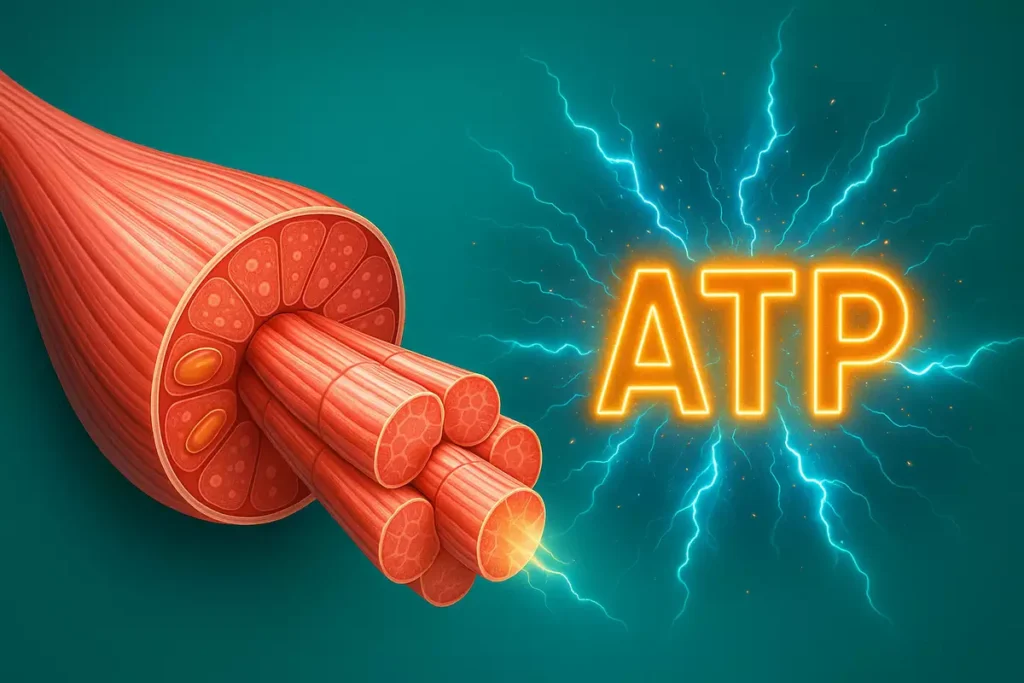Creatine is one of the most researched supplements for athletes. But can it really make you sprint faster?
The truth is, creatine directly fuels explosive energy, helping you accelerate quicker and recover faster between sprints.
Whether you’re a sprinter, football player, or simply chasing speed in training, creatine can be the edge that takes your performance to the next level.
Table of contents
Quick Answer
If you’re wondering whether creatine can make you sprint faster, the short answer is yes.
Creatine supports explosive power, improves recovery between sprints, and helps you push harder in repeated efforts. It’s not a magic pill, but for athletes who already train hard, it’s one of the most reliable supplements for sprint performance.
I’ve personally used creatine during my sprint-focused training phases, and the difference was real. I had sharper starts and recovered quicker between sets.
Let’s break down why this happens, the science behind it, and how you can use creatine safely and effectively.
How Creatine Works in the Body

Sprinting relies heavily on the ATP-PCr energy system, which fuels short bursts of maximum effort lasting up to 10 seconds.
Your body uses stored phosphocreatine in muscles to quickly regenerate ATP—the immediate energy currency for movement.
Creatine supplementation boosts these stores, giving your muscles more “instant energy.” That’s why sprinters, football players, and other explosive athletes benefit so much: it directly supports the energy system they depend on.
If you’re curious about different forms of creatine, I’ve also reviewed the best creatine types for rapid muscle recovery and compared creatine ethyl ester vs. monohydrate.
Scientific Evidence on Sprint Performance
Research consistently shows that creatine enhances sprint speed, acceleration, and repeated sprint ability.
Athletes often see improvements within the first 2–4 weeks of supplementation.
In my coaching experience, this matches real life. For example, David, a 22-year-old football player I worked with, noticed he could finish games with more energy after three weeks on creatine.
Another sprinter I coached, Mehdi, didn’t gain much visible weight but felt his starts were sharper and his legs had extra “pop” off the line.
Benefits of Creatine for Sprinters

- Faster starts and explosive power: That extra boost of stored energy can give you a stronger first step out of the blocks.
- Improved recovery between sprints: Creatine helps you repeat high-intensity efforts with less drop-off in speed.
- Strength and muscle support: Stronger muscles mean better sprint mechanics and reduced fatigue over time.
Personally, when I added creatine to my training, I could push harder during 30-meter sprint drills and bounce back faster for the next set.
That made my workouts more effective without extending recovery time.
Best Way to Use Creatine for Sprinting
I recommend keeping it simple: 5 grams daily.
You don’t need a heavy loading phase unless you want faster results. If you’re unsure, check my detailed breakdown of loading vs. no loading creatine results.
Timing isn’t critical, but I like taking mine post-workout with a protein shake or a meal.
For sprinters, the goal is consistency, not perfect timing. Some athletes even combine creatine with EAAs pre-workout for better performance, which I’ve explained in this EAA + creatine combo guide.
Possible Side Effects and Safety

The most common concern I hear is water retention.
I experienced this myself during the first week of supplementation—my weight went up about 1.5 kg. But it was just water stored inside the muscles, not fat.
Some athletes worry about cramps or bloating. Personally, I never experienced either, and neither did my clients, as long as they stayed hydrated and spread out doses if needed.
For a deeper dive into this topic, check my guide on creatine bloating and cramps.
It’s also important to note that not all creatine supplements are equally effective. For example, liquid creatine supplements have been shown to lose potency quickly compared to powders. And for plant-based athletes, vegan creatine vs. monohydrate is a hot topic worth considering.
Trainer’s Recommendation & Final Takeaway
Creatine won’t replace hard sprint training, but it can make your training pay off more.
If you’re already putting in the work, creatine gives you the edge to sprint faster, recover quicker, and perform better under repeated effort.
I always tell my athletes: creatine won’t make you fast if you don’t sprint, but if you’re training hard, it can help you sprint faster for longer.
So if your goal is explosive performance—whether you’re a sprinter, footballer, or just love training with speed—creatine is a supplement worth adding to your routine.



Leave a Reply